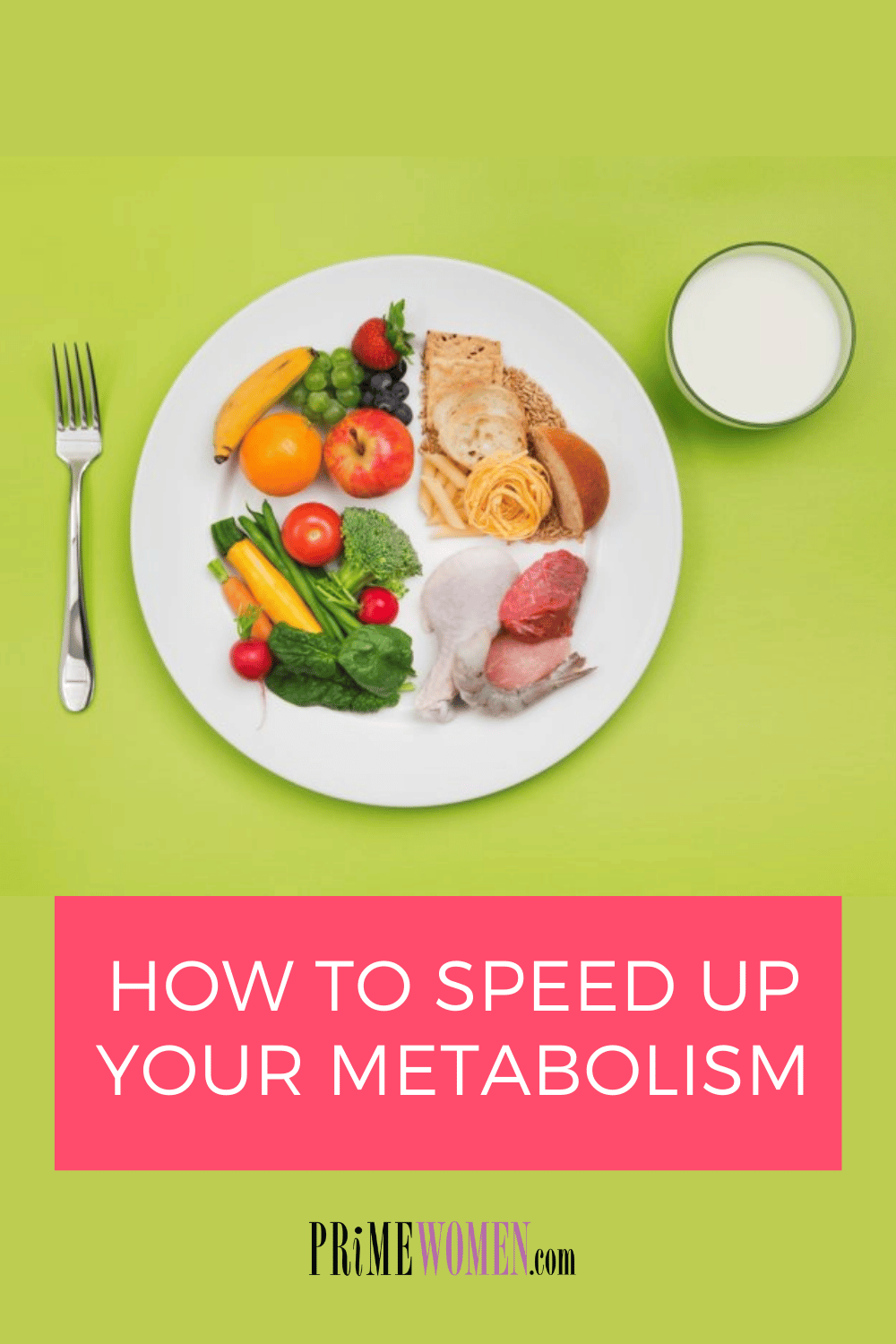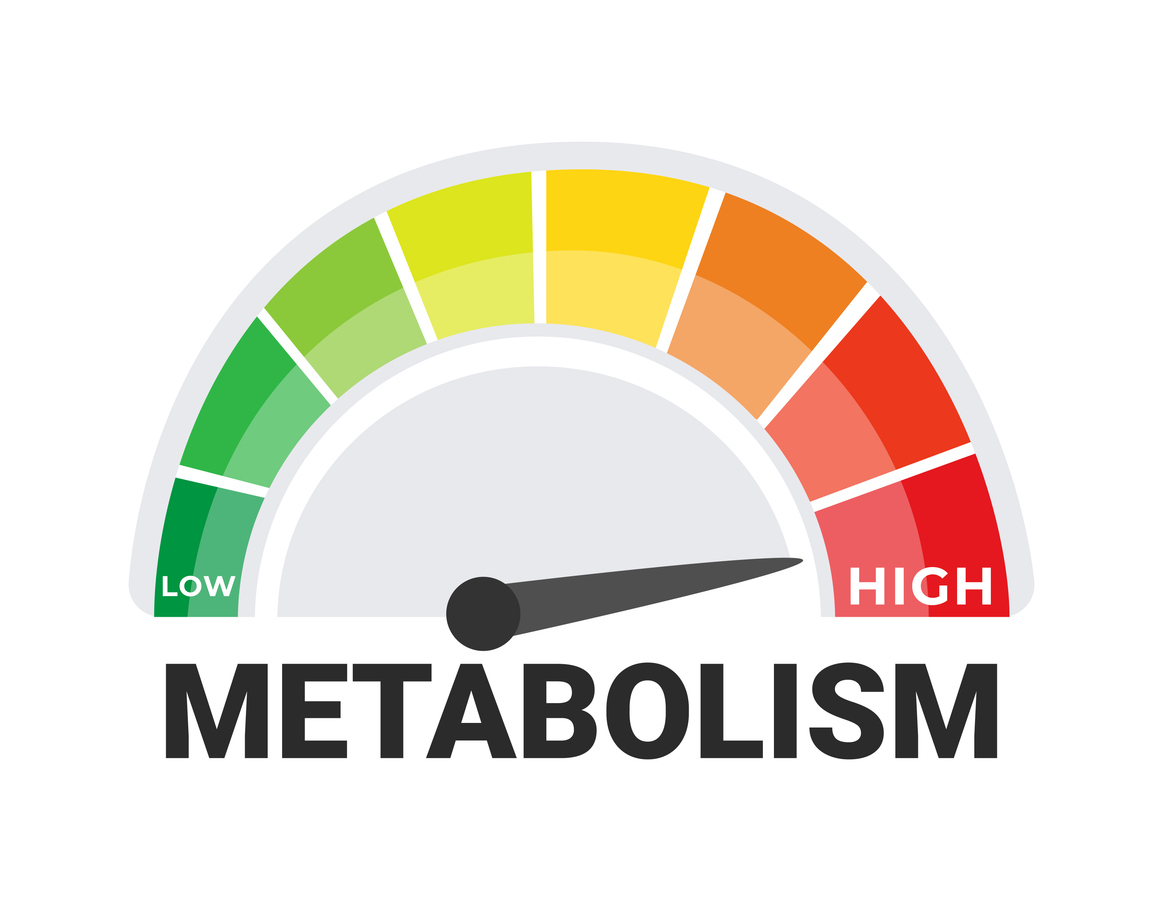When it comes to weight gain, we always try to figure out why it’s happening and what we can do to prevent it. While dieting and working out are typically found at the top of the list, it’s also helpful to take a look at our own individual situations. That’s where the topic of metabolism tends to pop up, and it’s really not something that can be ignored during the discussion. For some people, they’ve got a fast metabolism and never seem to gain weight no matter what they eat. For others, the weight seems to hold on regardless of what they do, and often, it can be traced back to a sluggish metabolism. So, let’s take a look at the reasons why it slows down and, just as important, how to speed up your metabolism.
3 Reasons Metabolism Slows Down
Understanding why we gain weight may help you better address some of the issues you haven’t even considered. One of those reasons is the inevitable arrival of menopause and all of the changes it causes in our bodies. Here are the top 3 reasons menopause affects the body and why it tends to make women gain weight.
1. Estrogen
Simply put, a reduction in estrogen may also lower metabolic rate, which in turn slows calorie burn. Studies also show that a lack of estrogen may cause the body to use starches and glucose less effectively (insulin resistance), thus increasing fat storage and making it more difficult to lose weight.
2. Less Exercise
It happens to the best of us; as we age, we are less likely to exercise. In fact, nearly one-third (31%) are not active enough – a number that increases with age.
3. Loss of Muscle Mass
Muscles help increase metabolism. Without toned muscles, there is a greater chance of weight gain.
8 Ways to Speed Up Your Metabolism
Exercise, nutrition, and small lifestyle changes are all you need to help reverse the effects of post-menopausal weight gain. Consider the following tips on how to speed up your metabolism, and try to incorporate them into your daily life. Not only will you speed up your metabolism and lose weight, but you’ll feel better mentally and physically and have more energy!
1. Eat Breakfast and Eat Often

Breakfast is essential. Your body has been deprived of food throughout the night, and your metabolism has slowed. Eating first thing in the morning will help speed up your metabolism by giving it a good kick-start. Eat less high-fat foods, fewer total calories, and eat 5-6 smaller meals a day. By doing this, your body knows that its energy source is steady and will burn more calories instead of storing it as fat for later use. (Note: The advice to eat breakfast and frequent meals to increase metabolism does not work for many older women unless they are VERY active.)
Choosing healthy foods, such as lean protein and vegetables, can also increase your metabolism. Increase dietary fiber, limit sugary foods, alcohol, and caffeine, and don’t smoke. The best foods to speed up your metabolism and help you lose weight are fish, dark green leafy vegetables, tomatoes, blueberries and other fruits, and whole grains.
2. Pile on the Protein

Protein takes more energy to digest than carbohydrates and fats and takes longer in the digestion process so that you won’t feel as hungry and will eat fewer calories. Aim to have a serving of protein, such as nuts, a small can of tuna, or a piece of low-fat string cheese, at every meal and snack. It’s also helpful to look at how much protein you really need to make sure you’re getting enough each day.
3. Spice It Up

Sprinkle a few hot peppers into your lunchtime soup or evening stir-fry. They temporarily speed up your metabolism, which increases your ability to burn more calories. You could also add hot sauce to your meal to get the same effect. My personal favorite is Sriracha, but add whichever tastes the best to you. Just make sure the sauce isn’t full of sugar or salt, or you’ll cancel any benefits you might have seen otherwise.
4. Exercise

The best way to speed up your metabolism is to exercise, as it will reduce body fat and increase lean muscle mass. Because muscle burns more calories than fat, increased muscle mass will aid in speeding your metabolism and, thus, improve the weight loss process. Lifting weights or using your own body weight will increase muscle mass the most. “A pound of muscle burns up to nine times the calories a pound of fat does,” explains fitness expert Westcott.
In fact, a woman who weighs 130 pounds and is muscular burns more calories than a sedentary 120-pound woman of the same height. Regular strength training can increase your resting metabolic rate anywhere from 6.8 to 7.8 percent. That means that if you weigh 120 pounds, you could burn around 100 more calories a day, even when you’re just watching TV.
Aerobic exercise, like walking, swimming, cycling, or running, has the bonus of speeding up your metabolism for 4 to 8 hours after you finish your workout. That means additional calories will be burned off long after you stop exercising. So, by exercising just a little more than usual, you can speed up your metabolism and use up stored fat in the process.
5. Rev Up Your Workouts
Adding interval training — bursts of high-intensity moves — to your workout is a great metabolism booster. It’s important to push the body to different levels so the metabolism does not become stabilized. Since it’s a more intense workout, your body is working harder, so you burn more calories. You can easily incorporate interval training into your workout by inserting a 30-second sprint into your jog every five minutes or by adding a one-minute incline walk to your treadmill workout.
6. Get Some Shut-eye

Skimping on sleep can derail your metabolism. Sleep is when the body heals and repairs itself. People who get four hours of sleep or less a night have more difficulty functioning, digesting, and even thinking. When the body is exhausted, it lacks the energy to do its normal day-to-day functions, including burning calories, so your metabolism is automatically lowered. If exercising at night tends to keep you awake, try working out in the morning or soaking in a hot bath before heading to bed.
7. Chill Out

Long-term stress can wreak havoc on your body and metabolism. When you’re chronically stressed, your body is flooded with stress hormones that can spark your appetite and make you likely to overeat. Exercise is a great stress reducer, as are activities like playing with the dog, writing in your journal, or listening to classical music. Allow yourself 10 to 15 minutes every day to kick back and enjoy one of these activities.
8. Drink More Water

Water helps to keep the body hydrated, function properly, and to move nutrients through the body. In addition, drinking cold water will speed up your metabolism because your body will use extra energy to heat the water to body temperature.
Read Next:
Everything You Always Wanted to Know About Your Metabolism But Didn’t Even Think to Ask!
The Metabolism Whisperer: A New Way to Eat








